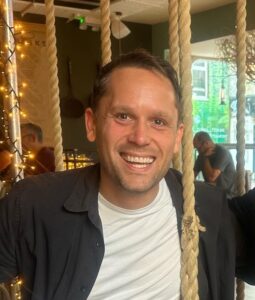Each month, we celebrate the real heroes – leaders who wage their silent battles in the digital realm. Protecting our data, our privacy, and ultimately, our way of life. Join us as we delve into the world of a chosen MVP, generally filled with sleepless nights, strategic coffee breaks, and unwavering dedication.
We’ll peel back the layers and discover what makes this cyber leader tick. Prepare to be inspired, challenged, and maybe even a little in awe of the quiet heroes who keep our digital world working and safe.
—
 Get to Know Glyn:
Get to Know Glyn:
Glyn Merritt is a seasoned IT professional with a proven track record in delivering tailored solutions for small to medium-sized businesses. With expertise in multi-site network implementation and project management, Glyn excels in optimising organisational IT infrastructures with a logical and system-driven approach. Specialising in areas such as Active Directory, backup solutions, and network security, Glyn has demonstrated proficiency in Microsoft, Mac, and Linux environments.
With a background spanning various roles, from IT Manager to Computer Technician, Glyn has consistently driven operational efficiency and client satisfaction. Glyn is dedicated to ensuring seamless IT operations and empowering staff for ongoing management.
About Alt Han Co Ltd:
Alt Han Co are pioneers in the UK energy sector, dedicated to overcoming technical barriers hindering the nationwide rollout of smart electricity and gas meters. With more than half of British households now benefiting from smart metering services, Alt Han Co’s mission is to ensure inclusivity by addressing network range limitations within buildings.
 By fostering collaboration among energy suppliers, Alt Han Co facilitates the seamless integration of device solutions into the nationwide smart meter rollout plans.
By fostering collaboration among energy suppliers, Alt Han Co facilitates the seamless integration of device solutions into the nationwide smart meter rollout plans.
Introduction
Rhys Williams: Welcome, Glyn. Today, we’re going to delve into your journey in the world of IT and your current role at Alt Han Co. Let’s rewind to where it all began and start by understanding how your passion for technology initially sparked. Can you tell us a bit about that?
Glyn Merritt: Absolutely, and thank you for having me. I would have to say that my dad initially drove my love for all things technology. When he worked in London, he began using technology a lot more and would bring home his laptop to work on. Both of us struggle with dyslexia, so using a computer to type became his saving grace – it was miles better than both his and my own atrocious handwriting.
Seeing him effortlessly type documents, planted a seed. As a kid, I’d tinker with his computers, even upgrading drives, they were known as floppy drives back then. Fascinated by the mechanics and the potential this technology held, my curiosity and interest in tech started there and hasn’t left since.
Career Journey
RW: Well, it’s clear that technology has always held a powerful appeal for you, and it must be great to have carried that through into your career. I Can you share insights from your diverse IT roles throughout your career, highlighting key takeaways and challenges you encountered?
GM: My IT journey started in a familiar environment: classroom support. Immersed in Microsoft solutions, I honed my technical skills and built a solid foundation. But the real growth came when I transitioned to a construction company, where I built their IT support desk from scratch. This required adaptability and a deep understanding of their specific needs.
 Then, I moved into an advertising agency, which really threw me a curveball. Suddenly, I was navigating a Mac-based world, forcing me to expand my skillset and embrace alternative approaches. It was both challenging and rewarding. It was a great learning experience that pushed me to think differently about technology, opening my mind to new and diverse possibilities.
Then, I moved into an advertising agency, which really threw me a curveball. Suddenly, I was navigating a Mac-based world, forcing me to expand my skillset and embrace alternative approaches. It was both challenging and rewarding. It was a great learning experience that pushed me to think differently about technology, opening my mind to new and diverse possibilities.
Now, at Alt Han Co, the landscape has shifted again. While the user base is smaller, the compliance demands are significant, especially coming from a “spend-first” environment like the agency. It’s a steep learning curve, but one I embrace. The transition from a profit-driven culture to a not-for-profit has instilled a new appreciation for resourcefulness and careful planning. Looking back, each role has been a stepping stone, equipping me with the skills and perspective I need to tackle any IT challenge.
RW: Managing an IT department for 200 users at an advertising agency must have been demanding. How did that experience prepare you for your current role at Alt Han Co, where you take the lead and manage their entire IT setup?
GM: It was a drastic shift, for sure. The advertising agency was a constant sprint, driven by sales and with less emphasis on compliance. Here at Alt Han Co, with its stricter regulations and smaller user base (45-50), things are very different. However, the skills I honed during that transition to Microsoft 365 and implementing new tools like Teams have proven invaluable.
However, the biggest difference lies in working solo versus with a team. In previous roles, I’ve been part of IT support teams of up to 10 people. While bouncing ideas off colleagues can speed up problem-solving and decision-making, being the lone IT lead at Alt Han Co certainly comes with its challenges.
The pressure of being the sole point of contact can be intense, and it’s easy to feel like a control freak at times. But the flip side is, I have a deep understanding of every aspect of the IT infrastructure. I can also tap into the expertise of Babble to get different perspectives and confirmation on decisions.
Ultimately, it’s a trade-off. While I miss the collaborative environment of a team, the autonomy and control I have here offers a unique learning opportunity. I’m constantly expanding my skillset and developing a holistic understanding of IT management, which wouldn’t be possible in the same way with a larger team.
Current Role at Alt Han Co.
RW: Let’s delve into your current role at Alt Han Co. Could you tell us a little about what Alt Han Co do and your responsibilities in the business?
GM: Alt Han Co plays a crucial role in improving energy efficiency by developing devices that connect smart meters to in-home displays. As IT Manager, I wear multiple hats.
I ensure we comply with industry-standard frameworks like ISO 27001. But compliance is just the baseline. I take a proactive approach, implementing advanced tools like egress to prevent data breaches. Egress acts as a watchful guardian, monitoring outgoing emails and flagging potentially risky transmissions, like sending sensitive payroll data to unauthorised recipients.
When I arrived, I saw an opportunity to leverage new technologies. Instead of simply setting up systems from scratch, I championed a migration process, ensuring a smooth transition while optimising efficiency. We’ve implemented cutting-edge tools like Microsoft Teams and Dynamics to streamline collaboration and communication across our teams. These tools not only improve our internal workflows but also enhance our ability to serve our clients seamlessly.

Something I try to focus on is ensuring the new systems we implement deliver maximum value. Take our recent upgrade to Microsoft E5 licenses, for example. These licenses are packed with powerful features, and I’ve been working diligently to fine-tune functionalities like data loss prevention and sensitivity labelling. This ensures the highest level of security for our data and opens our company’s eyes to the full potential of these advanced tools.
RW: Balancing day-to-day tasks with innovation can be challenging. How do you manage various user requests while staying proactive in exploring new solutions?
GM: Staying ahead of the curve is crucial. I actively solicit feedback from staff and leverage collaboration tools like Teams to optimise internal processes. Babble’s support frees up my time to focus on proactive, transformational tasks and projects, allowing me to explore new technologies that can benefit the company. My earliest experiences revolved heavily around Microsoft products.
While I’ve worked with diverse environments, including Mac-based systems, Microsoft products consistently formed the backbone of many organisations’ IT infrastructure. This familiarity and proven functionality played a significant role in shaping my approach to IT leadership, emphasising the importance of reliable and user-friendly technology solutions.
RW: Microsoft 365 seems to be a cornerstone of your IT infrastructure. Can you elaborate on your experience with different license tiers and your future plans?
GM: We started with Office 365 E3 licenses, which provided a solid foundation for our needs. However, as we explored ways to enhance efficiency and empower our team, we upgraded to Microsoft 365 E5. This unlocked advanced security features and opened doors to innovative, and brand-new, technologies like Microsoft Copilot. We’re excited by the possibilities and opportunities Copilot offers our people.
We’re currently in the initial stages of implementing Copilot for Microsoft 365, focusing on fostering AI literacy within the team and building a comprehensive implementation strategy. I used to spend a significant amount of time crafting emails, dyslexia often leads to me wrestling with phrasing and structure. Now, Copilot suggests clear and concise language as well as helps me structure my emails quickly and clearly. The time I used to spend crafting emails is now freed up for more strategic tasks. Copilot allows me to focus on higher-level IT initiatives and problem-solving.

RW: Could you share some strategies you’ve employed to help everyone get up to speed with Copilot for Microsoft 365?
GM: We recently bought two Copilot licenses for a colleague and myself to test. I always like to start small and safe. Peter, our Compliance Manager, and I, were the guinea pigs. We are in the process of poking and prodding, learning the ropes – testing things out and learning about some of the ways the wider organisation can benefit. Then, once we get the hang of it, we will start to bring in folks from departments like the secretarial team and the commercial crew who seem like they could benefit. Think summarising meetings for the secretaries, analysing contracts for the commercial team – stuff that could save them a ton of time.
My motto is, “don’t be afraid to get your hands dirty!” AI is evolving fast, there’s so much to explore. Start small, learn by doing, embrace the stumbles along the way. Get different people involved, use AI responsibly, and who knows, you might just unlock something amazing for your organisation.
RW: Could you tell us about how you’ve prepped these teams and made them comfortable with the introduction of Copilot for Microsoft 365?
GM: It’s all about clear communication, like giving Copilot super-specific instructions. We will share examples and encourage everyone to play around with different ways of phrasing things. Our approach will emphasise the importance of input quality, aligning with the concept of “garbage in, garbage out.” It’s important to ensure people understand that the quality of the information they give Copilot directly affects what they get back.
It will be important to note that Copilot is a helper, not a replacement. They should double-check any suggestions or content before use and be sure to give everything they use a sense-check.
RW: How did you gain buy-in from those who are responsible for budget in your organisation to purchase these Copilot licenses?
GM: Fortunately, we were already strategically positioned at the time for this transition thanks to our recent purchase and introduction of Microsoft 365 E5 licenses. Our prior investments in areas like data protection had already laid a robust security foundation, demonstrating our commitment to responsible practices.
However, what truly resonated with decision-makers was the clear return on investment (ROI). We conducted thorough calculations on the potential time savings across various tasks, such as email composition and document retrieval. We calculated how much time people could save on tasks like writing emails or searching for documents. We showed how Copilot could boost efficiency across departments – faster contract analysis, meeting summaries that write themselves, you name it. We painted a picture of how it could pay for itself in no time.
 RW: Sounds like a pretty compelling case if you ask me. You mentioned adding more users gradually. Who will be included next, and how will you know if it’s all working out?
RW: Sounds like a pretty compelling case if you ask me. You mentioned adding more users gradually. Who will be included next, and how will you know if it’s all working out?
GM: We’re looking for people who are tech-savvy and open to trying new things, those with repetitive tasks that could be automated or made easier with Copilot’s help. We also want diversity, different departments using it for different things. That way, we get a wider picture of how it’s working.
As for measuring success, we’ll be tracking things like how many people are using it, how much time it saves them on tasks, if there are fewer errors, and of course, what the users themselves think. Their feedback is gold, helps us see what’s working, and what needs tweaking.
RW: At Babble, we consider leaders like you to be MVPs – Most Valuable Players. Individuals consistently going above and beyond to drive success, leveraging the right tools and resources to constantly improve their efficiency, skills, and impact on the business. Your approach, focusing on understanding the business and empowering others through technology, will surely resonate with aspiring IT professionals.
GM: The field is constantly evolving, and there’s no shortage of opportunities for those who approach it with an open mind, a collaborative spirit, and a drive to make a difference.
As an IT Manager, personal achievements are rewarding, but the real satisfaction comes from empowering others. One defining moment was implementing SharePoint and creating a Microsoft Teams channel for each client at the advertising agency. This wasn’t just about technology; it was about giving ownership and control to the clients, enabling them to add and remove team members as needed. It broke down silos and simplified collaboration.
Similar situations happen often. Migrating from Huddle to SharePoint saved money and increased security and implementing sensitivity labels enhanced data control. It’s not just about replacing off-the-shelf solutions; it’s about understanding business needs and finding the right fit.
Rhys Williams: I appreciate that real-world perspective. This type of experience can motivate aspiring IT professionals to bridge the gap between the perception of “keeping the lights on” and highlighting the true transformative power of their work – you know better than anyone that IT is much more than just a function of the company. What are your thoughts on someone considering an IT career?
Glyn Merritt: I was fortunate to start at an IT support company and gain a broad understanding of different areas. This helped me discover my interests, which weren’t confined to a specific specialisation like web development or hardware. I genuinely enjoy understanding how businesses function and how IT can support them, not just making technology work for its own sake.
My advice: find what genuinely excites you within the vast IT landscape. If you’re like me and enjoy exploring everything, becoming an IT Manager can be a fantastic path. But if you have a specific passion, pursue that specialisation – there’s truly a place for everyone in this diverse field.
——-
 Get to Know More About Glyn:
Get to Know More About Glyn:
I grew up and live in Sussex with my wife Janella, who is much more worldly than I am. She moved from Trinidad with her family to the UK when she was eight. We both share an interest in food. Janella is very much an expert at cooking, and I focus solely on eating, keeping to our strengths. We both enjoy a visit to a fine dining restaurant with wine pairing as a treat to ourselves for special occasions.
When I’m not spending time with my wife and socialising with friends, I like to go running and, now that my knees are no longer up to the rigours of football, I enjoy watching Brighton and Hove Albion FC play at the Amex or on TV.




